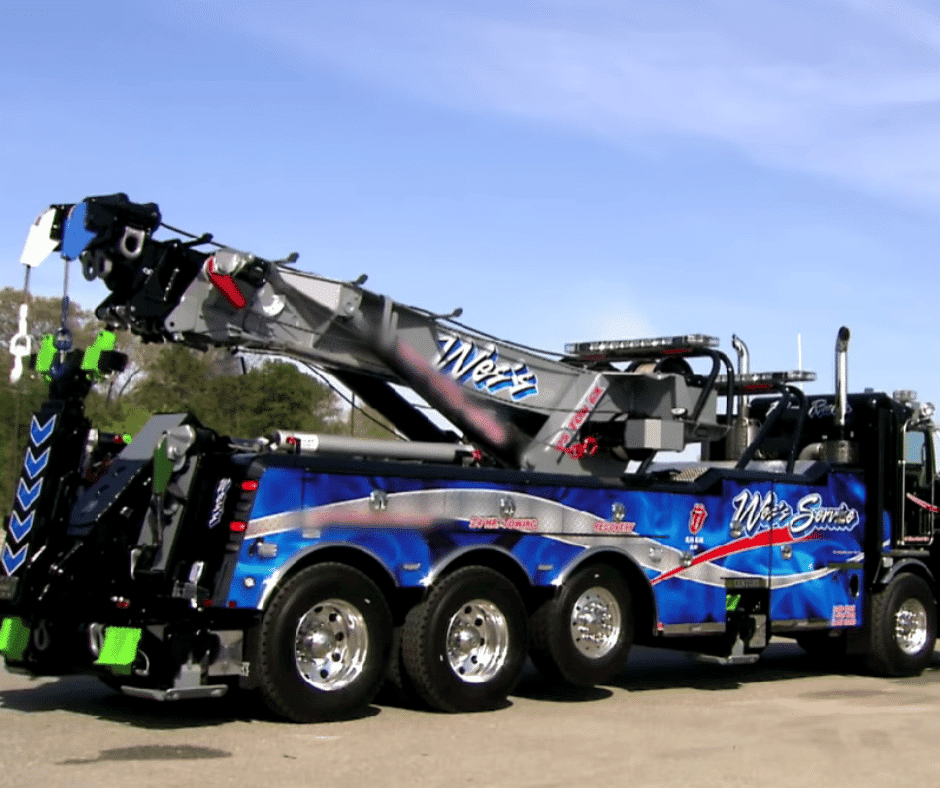Heavy-duty towing is a specialized and crucial service for transporting large vehicles and heavy machinery. At Macon Heavy Duty Towing, we bring expertise and precision to this challenging task. This guide aims to shed light on the complexities and nuances of heavy-duty towing, providing insights into why it is a vital service and how our team at Macon Heavy Duty Towing excels in delivering it with reliability and safety.
Understanding Heavy Duty Towing: A Comprehensive Overview
Heavy-duty towing is designed to handle vehicles and equipment that exceed the size and weight limits of standard towing. It is an essential service for large-scale transportation needs, including commercial trucks, buses, and heavy construction equipment. Understanding the specifics of this service is crucial for recognizing the expertise required and the challenges involved in safely and efficiently moving such large-scale loads.
Types of Heavy-Duty Towing Vehicles and Equipment
Heavy-duty towing requires specific types of vehicles and equipment to handle the large size and weight of the loads involved. Understanding these different types is crucial for selecting the right tool for the job. Here’s a list of common heavy-duty towing vehicles and equipment:
- Integrated Tow Trucks: Ideal for quick and efficient towing of large vehicles, integrating towing and recovery capabilities.
- Wheel-Lift Trucks: Used for towing heavy vehicles with minimal contact, ensuring vehicle safety.
- Rotator Trucks: Provide 360-degree rotation, perfect for complex recoveries and tight spaces.
- Flatbed Trucks: Suitable for transporting large, heavy machinery or vehicles that cannot be towed traditionally.
- Heavy-Duty Winches: These are essential for pulling heavy loads onto towing vehicles or recovering vehicles from difficult situations.
- Extended-Length Flatbeds: Used for oversized loads or multiple vehicle transport, offering increased capacity and versatility.
Choosing the right type of vehicle and equipment is a critical decision in heavy-duty towing, ensuring the safety and efficiency of the operation.
Preparing for Heavy Duty Towing: Safety and Procedures
Preparation for heavy-duty towing involves a series of meticulous safety checks and procedures. It’s crucial to inspect both the towing vehicle and the equipment for any potential issues before embarking on a towing job. This preparation ensures the safety of the tow operators, the load being towed, and other road users, making it a critical aspect of the heavy-duty towing process.
Legal Requirements and Compliance in Heavy-Duty Towing
Navigating the legal landscape of heavy-duty towing involves understanding and complying with a range of regulations and permits. These legal requirements vary depending on the region and the nature of the load being towed. Ensuring compliance not only abides by the law but also promotes safe and responsible towing practices, which is a cornerstone of Macon Heavy Duty Towing’s operations.
The Process of Heavy Duty Towing: Step by Step
The heavy-duty towing process is a complex operation that requires careful planning and execution. Here’s a breakdown of the steps involved in heavy-duty towing:
- Situation Assessment: Evaluate the towing needs, including the vehicle type and situation specifics.
- Selecting the Right Equipment: Choose the most appropriate towing vehicle and equipment based on the assessment.
- Preparing the Towing Vehicle: Conduct safety checks and prepare the towing vehicle for the operation.
- Attaching the Load Safely: Securely attach the vehicle or machinery to the tow truck, ensuring proper balance and weight distribution.
- Transportation: Carefully transport the load to its destination, adhering to all safety and traffic regulations.
- Unloading and Final Checks: Safely unload the vehicle and perform final checks to ensure everything is in order.
Costs and Pricing Structure for Heavy-Duty Towing Services
Understanding the pricing structure of heavy-duty towing is important for clients seeking these services. Costs are influenced by various factors, including the size and weight of the vehicle, the distance of the tow, and any additional services required. At Macon Heavy Duty Towing, we believe in transparency and provide clear, upfront pricing to help our clients make informed decisions without any surprises.
When to Call for Heavy Duty Towing: Identifying the Need
Knowing when to call for heavy-duty towing services is key to handling large vehicle emergencies or transportation needs effectively. Situations like oversized vehicle breakdowns, accidents involving large trucks, or the relocation of heavy machinery necessitate professional heavy-duty towing. In such scenarios, Macon Heavy Duty Towing is equipped to respond promptly and efficiently, ensuring your heavy towing needs are met with the highest standards of service.
Technology and Innovations in Heavy-Duty Towing
The heavy-duty towing industry has benefitted greatly from technological advancements and innovations. State-of-the-art equipment, GPS tracking systems, and modern safety devices have revolutionized how towing services are provided, enhancing both safety and efficiency. Macon Heavy Duty Towing stays updated with these technological trends to offer our clients the most advanced and reliable towing solutions available.
Contact Us for Heavy Duty Towing Services
Mastering the complexities of heavy-duty towing ensures safety and efficiency in transporting large vehicles and machinery. At Macon Heavy Duty Towing, we are committed to offering unparalleled heavy-duty towing services. Our extensive experience, coupled with state-of-the-art equipment, makes us the ideal choice for managing your heavy towing needs. Trust Macon Heavy Duty Towing to be your reliable partner in any heavy-duty towing scenario. Contact us to experience the professionalism and efficiency that sets us apart in the industry.
